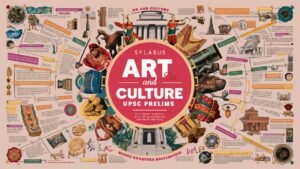Introduction:
In the vibrant tapestry of Indian history, the imprint of certain individuals resonates profoundly, shaping not just the course of events but also the very essence of our identity. Dr. B.R. Ambedkar, affectionately revered as the Father of Indian Polity, stands as an indomitable figure whose vision and contributions continue to influence the socio-political landscape of modern India. As we delve into the labyrinth of India’s democratic framework, it’s imperative to illuminate the profound impact of Dr. Ambedkar’s ideas and ideals.

Dr. Ambedkar’s seminal role in crafting the Indian Constitution solidifies his status as the architect of modern Indian polity. His astute understanding of social dynamics, coupled with an unwavering commitment to justice and equality, permeates every facet of our governance structure. From championing the cause of marginalized communities to advocating for fundamental rights, his legacy reverberates through the corridors of power, reminding us of the enduring principles that underpin our democracy.
Dr. B.R. Ambedkar: A Beacon of Social Justice
Born into a society rife with caste prejudices, Dr. Ambedkar’s personal journey epitomizes resilience in the face of adversity. His relentless pursuit of education despite systemic barriers underscores his unwavering determination to challenge the status quo. As we reflect on his contributions, it’s imperative to acknowledge his pivotal role in emancipating millions from the shackles of caste-based discrimination.
Dr. Ambedkar’s vision extended far beyond legal frameworks; it encompassed the very soul of Indian society. His advocacy for social justice found expression not only in the Constitution but also in his tireless efforts to uplift the downtrodden. Through initiatives like the Poona Pact, he negotiated with the British Raj to secure political representation for Dalits, laying the groundwork for a more inclusive polity.
Legacy in Indian Polity:
The indelible mark left by Dr. Ambedkar on Indian polity extends beyond his role as the chairman of the Constitution Drafting Committee. His profound understanding of constitutional principles, coupled with a keen sense of social equity, imbues our governance framework with a sense of purpose and direction. From the delineation of fundamental rights to the establishment of independent institutions, his vision continues to serve as a lodestar for policymakers and jurists alike.
One of the hallmark contributions of Dr. Ambedkar to Indian polity is the reservation policy. Recognizing the entrenched disparities within Indian society, he advocated for affirmative action to level the playing field for historically marginalized communities. The inclusion of reservation provisions in the Constitution reflects his foresight in addressing structural inequities, laying the groundwork for a more egalitarian society.
Comparative Analysis:
To comprehend the magnitude of Dr. Ambedkar’s influence on Indian polity, it’s instructive to juxtapose his contributions with those of other stalwarts. While figures like Mahatma Gandhi and Jawaharlal Nehru played pivotal roles in India’s struggle for independence, it was Dr. Ambedkar who provided the intellectual underpinnings for our democratic republic. His meticulous scholarship and unyielding commitment to constitutionalism set him apart as a towering figure in the annals of Indian history.
| Contributor | Role | Legacy |
|---|---|---|
| Mahatma Gandhi | Leader of Indian Independence Movement | Advocated for non-violent resistance and civil disobedience, laying the groundwork for India’s freedom struggle. |
| Jawaharlal Nehru | First Prime Minister of India | Instrumental in laying the foundations of India’s democratic institutions and guiding its early years as an independent nation. |
| Dr. B.R. Ambedkar | Architect of Indian Constitution | Drafted the Indian Constitution, championed social justice, and advocated for the rights of marginalized communities, leaving an indelible mark on Indian polity. |
Conclusion:
In the tapestry of Indian polity, Dr. B.R. Ambedkar emerges as a colossus, his towering intellect and unwavering commitment to justice illuminating the path towards a more equitable society. As we navigate the complexities of governance and democracy, his principles serve as a guiding light, reminding us of the moral imperative to uphold the dignity and rights of every citizen. Indeed, the title of Father of Indian Polity befits none other than the visionary who sculpted the foundations of our democratic republic.
Read Also:
- Your Ultimate Guide to Staying Informed in 2024
- Stay Informed with the Latest Daily Current Affairs: Comprehensive Resources
- What is the Full Form of LOL in General Knowledge (GK)?
- How Can I Improve My GK and Current Affairs?
- Daily Current Affairs 2024 for UPSC IAS – InsightsIAS
- Read All Latest Updates on and About UPSC Exam
- Indian Express Today: Important News for UPSC Aspirants
- What is the Salary of the UPSC Chairman?
- How to Prepare GK for UPSC: Your Ultimate Strategy Guide
- How to Increase General Knowledge for IAS?
- Is Static GK Important for UPSC?

